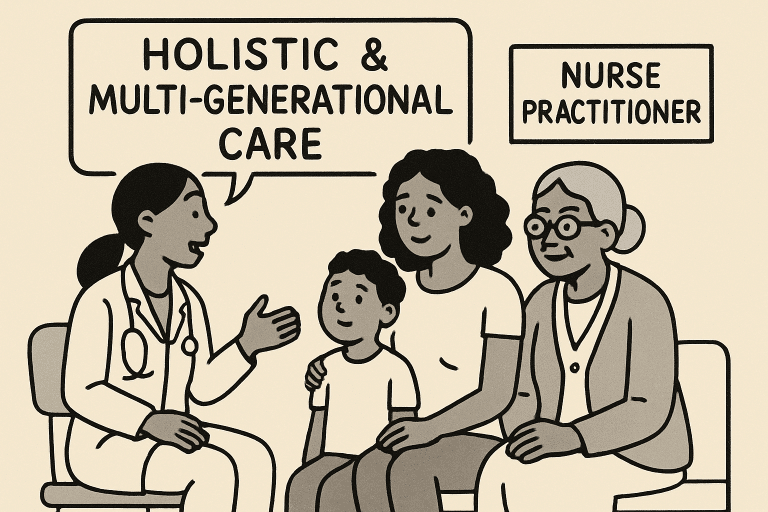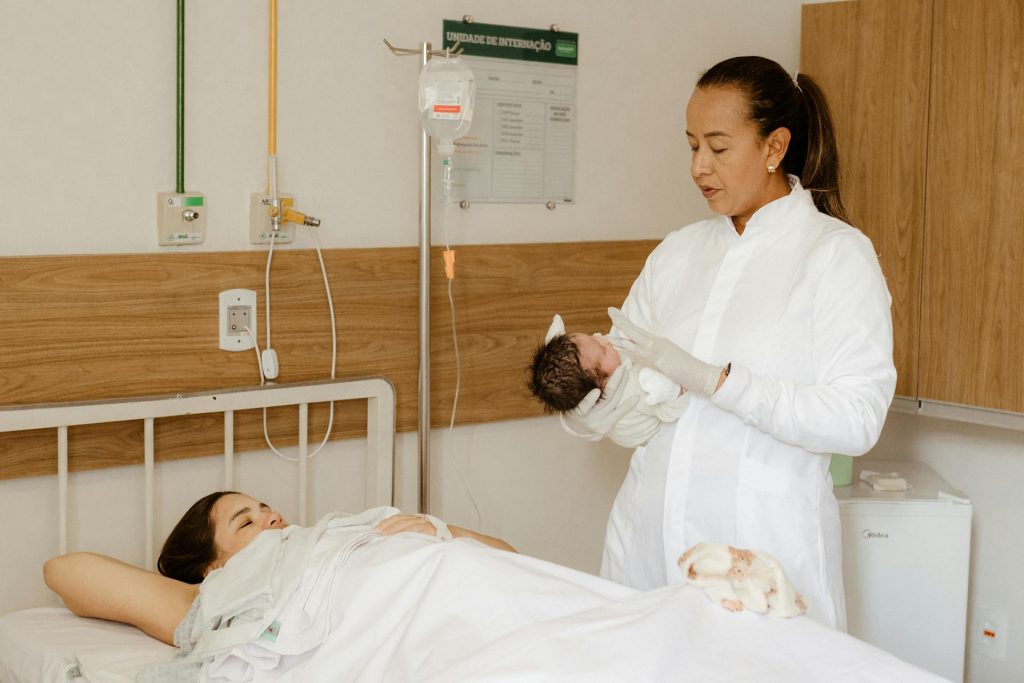The Family Nurse Practitioner track within MSN programs equips nurses to deliver advanced, holistic care across all ages. Students develop diagnostics, treatment, and health promotion skills while gaining leadership and policy insight to address community needs.
Through clinical training and evidence-based coursework, graduates are prepared to manage complex cases, promote preventative care, and collaborate effectively in diverse healthcare settings. This pathway empowers nurses to expand their scope of practice, improve patient outcomes, and contribute meaningfully to healthcare transformation.
Introduction to the Family Nurse Practitioner Role
Family Nurse Practitioners (FNPs) play a crucial role in today’s complex healthcare landscape, delivering primary and preventative care to patients throughout all stages of life. With advanced clinical training and a patient-centered approach, FNPs can diagnose, treat, and manage various health conditions while promoting wellness and disease prevention. Demand for FNPs increases as healthcare systems prioritize accessibility and holistic care.
Pursuing a career as an FNP typically begins with an advanced degree program such as the Master of Science in Nursing (MSN) with an FNP concentration. If you’re interested in finding a high-quality program, consider options like a nurse practitioner school Arkansas for a flexible and comprehensive educational experience.
MSN-FNP programs are designed to prepare registered nurses for autonomous practice, emphasizing both clinical and leadership skills. FNPs are essential to closing gaps in primary care, especially in underserved regions where physician shortages are pronounced. Their advanced education allows them to work independently, prescribe medications, and lead community health initiatives in diverse clinical environments.
Nurses considering this advanced pathway should be prepared for intense academic study and hands-on clinical experiences vital to developing advanced competencies. Graduates emerge with the capability to assess, diagnose, and manage patient health across multiple settings, ensuring families and individuals benefit from continuous, high-quality care.
Core Curriculum Components
Enrolling in an MSN program with an FNP track provides comprehensive didactic and clinical education. The core curriculum typically includes:
- Advanced Pathophysiology: Students dive deep into human biology, understanding disease mechanisms that inform their clinical decisions.
- Advanced Pharmacology: This segment explores medication management, including pharmacokinetics, side effects, and safe prescribing practices.
- Advanced Health Assessment: Learners refine patient evaluation and diagnostic reasoning with hands-on experience in comprehensive assessments.
- Primary Care Management: The curriculum covers strategies for managing acute and chronic health conditions across life spans and populations, focusing on holistic care planning and implementation.

Additional coursework often includes health policy, evidence-based practice, informatics, and leadership, ensuring graduates can effectively navigate changing healthcare environments. Review this Bureau of Labor Statistics resource for a deeper understanding of the FNP role and workforce outlook.
Clinical Practicum Experiences
Hands-on clinical training, or practicum, is integral to every accredited FNP program. Students typically complete a minimum of supervised clinical hours in various settings such as family practices, pediatric clinics, internal medicine offices, and community health centers.
These immersive experiences bridge the gap between classroom theory and real-world practice, empowering students to hone diagnostic, procedural, and communication skills alongside experienced preceptors.
Clinical sites may range from rural primary care centers to urban specialty clinics, expanding students’ exposure to diverse patient populations and healthcare challenges. This hands-on learning is required for graduation and essential in building the confidence and competence needed for advanced practice nursing.
Certification and Licensure
Completing an MSN-FNP program renders graduates eligible for national certification — a crucial step for independent practice. The primary certifying bodies for FNPs in the United States are the American Nurses Credentialing Center (ANCC) and the American Academy of Nurse Practitioners (AANP). Passing one of these certification exams requires obtaining state licensure as an FNP and practicing autonomously or within collaborative teams.
State licensure requirements may vary, but generally align with national standards, ensuring consistent competency and patient safety. Ongoing professional development and recertification further ensure FNPs remain up-to-date with evolving medical knowledge and best practices. Certification requirements can be found on the American Nurses Association website.
Career Opportunities
The versatility of the FNP scope of practice opens doors to a broad range of work settings, including:
- Private practices as primary care providers
- Community health centers addressing preventive care needs
- School-based clinics supporting children’s health and wellness
- Urgent care facilities manage acute illnesses and injuries
- Specialty clinics such as women’s health, geriatrics, or pediatrics
FNPs are valued for their holistic, long-term approach to patient care. They often establish lasting relationships with individuals and families. The expanding autonomy and professional recognition achieved by FNPs enhance their impact across a continually evolving healthcare field.
Program Delivery Formats
Recognizing the diverse needs of aspiring FNPs, MSN programs today are available in multiple delivery formats:
- On-Campus: Ideal for those who prefer structured schedules and face-to-face interactions with faculty and peers.
- Online: Offers flexible learning for working professionals or those balancing family responsibilities.
- Hybrid: Combines online coursework with periodic on-campus sessions, blending flexibility with hands-on learning.
Each format provides access to rigorous curriculum and clinical placements while accommodating different learning styles, schedules, and geographic locations.
Accreditation and Program Quality
When evaluating an MSN-FNP program, it’s essential to confirm that it holds accreditation from respected agencies like the Commission on Collegiate Nursing Education (CCNE) or the Accreditation Commission for Education in Nursing (ACEN). Accreditation ensures the program meets strict academic and professional benchmarks while maintaining eligibility for national certification.
It also secures access to federal financial aid and smooths the path for credit transfers or advanced studies. For example, institutions such as Arkansas State University emphasize the importance of accredited programs to support long-term career advancement and educational opportunities.
Conclusion
Pursuing an MSN with an FNP track represents an investment in professional growth and community well-being. By blending advanced nursing education, hands-on clinical practice, and leadership development, FNPs are uniquely positioned to meet primary care needs and address healthcare disparities nationwide.
Graduates step into a fulfilling role with the knowledge, confidence, and credentials required to drive meaningful, lifelong impact for the individuals and families they serve.





































